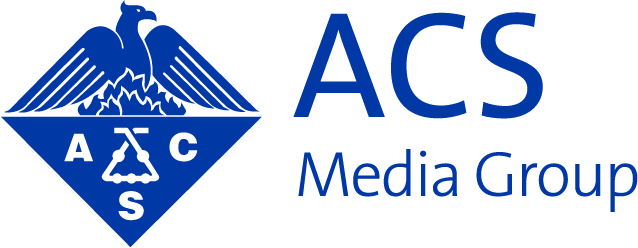What does commuting to work, checking your social media feeds and reading your favorite publications have in common? These activities all compete for your attention. In today’s consumer and B2B marketplace, we are constantly asked to read emails, view advertisements, and share social media content. As a result, the marketplace can be overwhelmed with messages.
In tune with this, it has become challenging to grab – and maintain – a customer’s attention, let alone their trust. Building audience credibility on your own is a lengthy pursuit, but it is possible to align yourself with people and organizations that have already established a positive reputation in your space. To earn the confidence of your audience, you may consider engaging a trusted advocacy group.
It can’t be a one-way relationship: the success of your campaign should also be measured by how you can help and advance the advocacy group or community. If done well however, the benefits of a partnership also include higher visibility and brand awareness, stronger ties to the community, and the ability to support the group’s mission of science and education. Together, you can work toward improving the science community as a whole.
Finding a partner
Advocacy groups comprise like-minded people banding together to support a specific issue, idea or policy. These groups are usually vocal and driven, with an aim to influence public opinion to benefit their cause. They have a strong base of subscribers, listeners and followers, all eager to stay educated and engaged with the community. If this demographic overlaps with yours, then that advocacy group can be the key to marketing success for both direct-to-consumer companies, or those looking to engage the science community business-to-business.
The critical first step is identifying an advocacy group that matches the benefits your product or services provide. There are hundreds of active advocacy groups within the science industry, and with a bit of help from Google, you can find one that aligns with your company’s mission. Search for key terms that describe your company’s own work. If your science is directed towards a specific therapeutic area, then your search will likely be an easier one. But you may have to think outside the box.
Here are some additional ideas to help get you started:
1. STEM research. Science, technology, engineering and mathematics are vital industries for future economic strength. Governments are advocating for STEM and many non-profit organizations have cropped up to promote it. If you have science talent on staff and some inspiring partners, this could be an avenue for you.
2. Women in science. #WomeninSTEM, #Ilooklikeanengineer; As it should, the female scientist movement is gaining traction with viral hashtags and Fortune 100 CEOs participating. Anyone can get involved, whether by highlighting your own female stars, or by encouraging the next generation of women to know science is an option for them.
3. Environmental groups. Science is moving the world in a positive direction, but there are still many negative perceptions surrounding what we do. Things like GMO crops, or chemical fertilizers can be a real advance for the environment, but used as a backward step in public relations. Fortunately, there are many open-minded, well-respected environmental groups that will take your science for what it is. Partnering and working with them can help improve your brand, and potentially the conversation itself.
4. Embracing conflict. Oftentimes, even well-intentioned science can create a possible downside. Case-in-point, Amgen’s protein therapeutic approved for the treatment of chronic anemia in cancer patients was also the drug that Lance Armstrong and others abused for years, giving them an unfair advantage as professional cyclists. To turn the negative publicity around, Amgen began sponsoring cycling events, trying to give back to the sport and offset the damage that doping had done.
5. Associations. You’re probably a member of an industry advocacy group or professional society, such as the ACS (American Chemical Society) or a regional biotech association. But there are many more opportunities if you go beyond simply signing up. For instance, guest blogs can work both ways: if they want to share their advocacy message or if you would benefit from communicating to their crowd. You can also join the board or consider co-sponsoring an event — it’s all positive associations.
Terms of engagement
You’ve identified a suitable partner, so what are the next steps? It’s important to work out internally, and then externally, what sort of value you can bring to the partnership in exchange for their credibility and audience access. Some examples include:
Content: As these groups rely on science insight and constant communication to keep their community engaged, they are often hungry for content. You have a story to tell and advocacy groups have a need to communicate. Use that to your advantage as you plan a mutually beneficial relationship.
Collaboration: Another impactful way to partner with an advocacy group is to collaborate on a research project, program or other initiative. Co-authoring a study or working together to develop a product or service is a great way to demonstrate your company’s dedication to supporting the given community.
A great example of this is Carolus Therapeutics’ collaboration with The Alpha-1 Project of Miami to accelerate pre-clinical research for diseases associated with alpha-1 antitrypsin deficiency. Working together on a project shows that your goals and mission statements align. Any positive publicity that the initiative garners will help your company create a favorable impression as well. But at the end of the day, that’s just a plus when you’re working together to move science forward.
A final note on what you bring to the table: back everything up with actions. Partnerships should begin with the best of intentions, which means a commitment to advancing both sides’ goals. Rather than simply promoting your goodwill, think about what tangible contributions you can make to move the initiative forward.
Final considerations
You’ve narrowed down an advocacy partner and determined what you can offer. There are a few additional considerations to keep in mind before you initiate a conversation:
1. Does this advocacy group have a good reputation within the community? What pushback do they receive? Be sure you understand a community’s objections, and that your team understands your company’s response (if necessary). This is especially important if you’re creating a social media campaign.
2. How active is the group? Online? At trade shows and community meetings? Who else have they worked with in this way?
3. What can I bring to the table that will be of value to them? Are there limitations here that you need to consider?
4. Are there any potential conflicts of interest or principles? Who would you have to involve internally to solve this issue?
Advocacy groups and other communities can be fantastic business partners, and it’s a relationship that you should aspire to attain. Do your research and strategize the best approach, before extending the hand of friendship to realize mutual goals. Despite their non-profit status, they can be a powerful ally for both marketing and sales.
from you
Which industry partnerships have you seen that has helped advance its community?


















